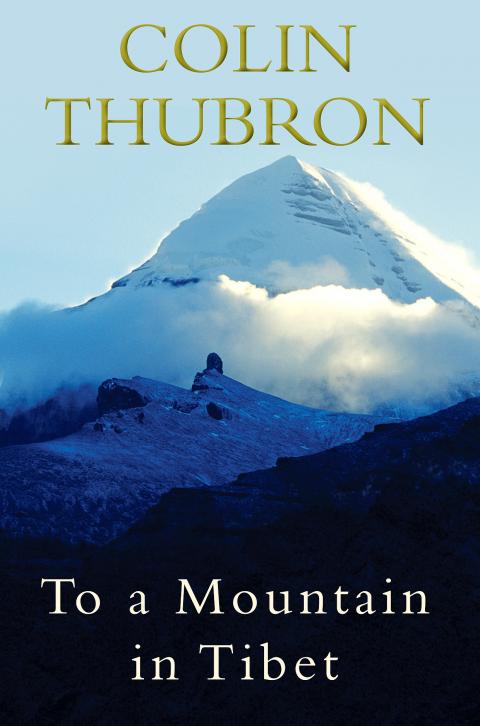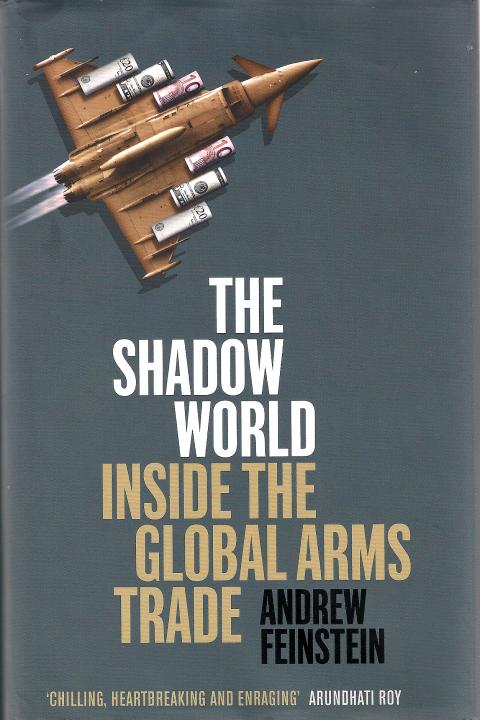Of the books I’ve reviewed this year, the most somber, terrifying and menacing was The Shadow World: Inside the Global Arms Trade by Andrew Feinstein (Hamish Hamilton; reviewed in the Taipei Times Jan. 31). Not only does it give extensive information about private arms dealers — it also considers government involvement. It was reminiscent of the film The Lord of War, at the end of which the credits state that the planet’s biggest exporters of arms are the US, Russia, the UK, France and China — in other words, the five permanent members of the UN Security Council. It makes you think again about the kind of world we’re really living in.
Not necessarily an answer to the horror of the international arms trade, but nonetheless enormously fascinating as history, was the re-issue, finally in its complete form, of Victor Serge’s 1951 classic Memoirs of a Revolutionary (New York Review of Books; reviewed June 5). Serge joined the Bolsheviks for a time while remaining resolutely opposed to all terror tactics, not to mention being a life-long opponent of the death penalty. Later he was sentenced to internal exile, and was lucky to be released after protests from writers in the West, ending his life in Mexico. His wonderful autobiography makes for a substantial and very invigorating read.
Back in the modern world, but a long way from most people’s experience of it, was Colin Thubron’s To a Mountain in Tibet (Vintage; reviewed July 31). It describes his approach to, and circuit of, Mount Kailash, a mountain considered so sacred that no one has apparently ever been to its peak. Thubron is simultaneously skeptical and open to all impressions. The Tibetan way of death is everywhere evident, but Thubron, 73 at the time, soldiers on with one guide and one porter, and no doubt a very good pair of boots.

Taipei Times file photo
From Penguin came the paperback of Norman Davies’s Vanished Kingdoms: The History of Half-Forgotten Europe (reviewed Nov. 27). In it, this distinguished professor revisits 14 European nations that no longer exist, and relates their destinies with considerable gusto. This is a continent, you quickly come to realize, that has been ruled and fought over by diverse dynasties for thousands of years, with men being willing to lay down their lives for “king and country” when the country, let alone the king, proves to be very much a temporary phenomenon. It’s a lesson that should be learned by us all.
Lastly, a book that I haven’t been able to get out of my mind is Taipei-resident Eric Mader’s Heretic Days: Writings from the Margins of Christianity (CreateSpace, reviewed Feb. 28). It’s simultaneously learned, wide-ranging and bizarre, combining considerations of topics as various as Leonard Cohen, William Blake, St Thomas’s Gospel and the necessity of Judas’s betrayal of Jesus. It’s endlessly fascinating, but so far from my usual areas of interest that I can only put its lingering in my consciousness down to the stubborn persistence, in Mader at least, of human independence and resolution.

Taipei Times file photo

As Donald Trump’s executive order in March led to the shuttering of Voice of America (VOA) — the global broadcaster whose roots date back to the fight against Nazi propaganda — he quickly attracted support from figures not used to aligning themselves with any US administration. Trump had ordered the US Agency for Global Media, the federal agency that funds VOA and other groups promoting independent journalism overseas, to be “eliminated to the maximum extent consistent with applicable law.” The decision suddenly halted programming in 49 languages to more than 425 million people. In Moscow, Margarita Simonyan, the hardline editor-in-chief of the

Six weeks before I embarked on a research mission in Kyoto, I was sitting alone at a bar counter in Melbourne. Next to me, a woman was bragging loudly to a friend: She, too, was heading to Kyoto, I quickly discerned. Except her trip was in four months. And she’d just pulled an all-nighter booking restaurant reservations. As I snooped on the conversation, I broke out in a sweat, panicking because I’d yet to secure a single table. Then I remembered: Eating well in Japan is absolutely not something to lose sleep over. It’s true that the best-known institutions book up faster

The latest Formosa poll released at the end of last month shows confidence in President William Lai (賴清德) plunged 8.1 percent, while satisfaction with the Lai administration fared worse with a drop of 8.5 percent. Those lacking confidence in Lai jumped by 6 percent and dissatisfaction in his administration spiked up 6.7 percent. Confidence in Lai is still strong at 48.6 percent, compared to 43 percent lacking confidence — but this is his worst result overall since he took office. For the first time, dissatisfaction with his administration surpassed satisfaction, 47.3 to 47.1 percent. Though statistically a tie, for most

Though the total area of Penghu isn’t that large, exploring all of it — including its numerous outlying islands — could easily take a couple of weeks. The most remote township accessible by road from Magong City (馬公市) is Siyu (西嶼鄉), and this place alone deserves at least two days to fully appreciate. Whether it’s beaches, architecture, museums, snacks, sunrises or sunsets that attract you, Siyu has something for everyone. Though only 5km from Magong by sea, no ferry service currently exists and it must be reached by a long circuitous route around the main island of Penghu, with the